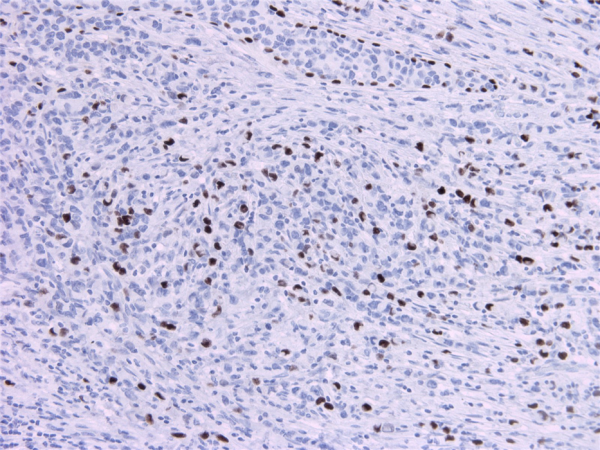Cookie-Einstellungen
Diese Website benutzt Cookies, die für den technischen Betrieb der Website erforderlich sind und stets gesetzt werden. Andere Cookies, die den Komfort bei Benutzung dieser Website erhöhen, der Direktwerbung dienen oder die Interaktion mit anderen Websites und sozialen Netzwerken vereinfachen sollen, werden nur mit Ihrer Zustimmung gesetzt.
Konfiguration
Technisch erforderlich
Diese Cookies sind für die Grundfunktionen des Shops notwendig.
"Alle Cookies ablehnen" Cookie
"Alle Cookies annehmen" Cookie
Ausgewählter Shop
CSRF-Token
Cookie-Einstellungen
FACT-Finder Tracking
Individuelle Preise
Kundenspezifisches Caching
Session
Währungswechsel
Komfortfunktionen
Diese Cookies werden genutzt um das Einkaufserlebnis noch ansprechender zu gestalten, beispielsweise für die Wiedererkennung des Besuchers.
Facebook-Seite in der rechten Blog - Sidebar anzeigen
Merkzettel
Statistik & Tracking
Endgeräteerkennung
Kauf- und Surfverhalten mit Google Tag Manager
Partnerprogramm
| Artikelnummer | Größe | Datenblatt | Manual | SDB | Lieferzeit | Menge | Preis |
|---|---|---|---|---|---|---|---|
| OPT-BSH-3006-100 | 100 µl | - |
10 - 14 Werktage* |
290,00 €
|
|||
| OPT-BSH-3006-1 | 1 ml | - |
10 - 14 Werktage* |
790,00 €
|
Bei Fragen nutzen Sie gerne unser Kontaktformular.
Bestellen Sie auch per E-Mail: info@biomol.com
Größere Menge gewünscht? Bulk-Anfrage
Bestellen Sie auch per E-Mail: info@biomol.com
Größere Menge gewünscht? Bulk-Anfrage
The p63 gene is a homologue of the p53 tumor suppressor gene. Like p53, p63 contains a... mehr
Produktinformationen "Anti-P63"
The p63 gene is a homologue of the p53 tumor suppressor gene. Like p53, p63 contains a transactivation (TA) domain induce the transcription of target genes, a DNA binding domain, and an oligomerization domain (OD), used to form tetramers. In contrast to p53, the p63 gene encodes for at least six major isotypes. Three isotypes (TAp63alpha, TAp63beta, and TAp63gamma) contain the transactivating (TA) domain and are able to transactivate p53 report genes and induce apoptosis. In contrast, the other three isotypes (deltaNp63alpha, deltaNp63beta, deltaNp63gamma) are transcribed from an internal promoter localized within intron3, lack the TA domain, and act as dominant-negatives to suppress transactivation by both p53 and TAp63 isotypes. p63 is highly expressed in the basal cells of the epithelium significant for proper limb outgrowth and morphogenesis.4 In differentiating tissues, p63 is crucial for maintaining the stem cell identity of the basal cells, and is indispensable for correct development of the skin as well as the limb. p63-deficient mice lack all squamous epithelia and their derivatives, including hair, whiskers, teeth, as well as mammary, lacrimal, and salivary glands.Tissue specificity: Widely expressed, notably in heart, kidney, placenta, prostate, skeletal muscle, testis and thymus, although the precise isoform varies according to tissue type. Progenitor cell layers of skin, breast, eye and prostate express high levels of DeltaN-type isoforms. Isoform 10 is predominantly expressed in skin squamous cell carcinomas, but not in normal skin tissues Control: Tonsil, prostate. Protein function: Acts as a sequence specific DNA binding transcriptional activator or repressor. The isoforms contain a varying set of transactivation and auto-regulating transactivation inhibiting domains thus showing an isoform specific activity. Isoform 2 activates RIPK4 transcription. May be required in conjunction with TP73/p73 for initiation of p53/TP53 dependent apoptosis in response to genotoxic insults and the presence of activated oncogenes. Involved in Notch signaling by probably inducing JAG1 and JAG2. Plays a role in the regulation of epithelial morphogenesis. The ratio of DeltaN-type and TA*-type isoforms may govern the maintenance of epithelial stem cell compartments and regulate the initiation of epithelial stratification from the undifferentiated embryonal ectoderm. Required for limb formation from the apical ectodermal ridge. Activates transcription of the p21 promoter. [The UniProt Consortium]
| Schlagworte: | Anti-p40, Anti-p63, Anti-KET, Anti-p51, Anti-CUSP, Anti-p73L, Anti-TP63, Anti-Tumor protein 63, Anti-Tumor protein p73-like, Anti-Transformation-related protein 63, Anti-Chronic ulcerative stomatitis protein, Anti-Keratinocyte transcription factor KET |
| Hersteller: | Optibodies |
| Hersteller-Nr: | BSH-3006 |
Eigenschaften
| Anwendung: | IHC (paraffin) |
| Antikörper-Typ: | Monoclonal |
| Klon: | BSR6 |
| Konjugat: | No |
| Wirt: | Rabbit |
| Spezies-Reaktivität: | human, mouse |
Datenbank Information
| KEGG ID : | K10149 | Passende Produkte |
| UniProt ID : | Q9H3D4 | Passende Produkte |
| Gene ID : | GeneID 8626 | Passende Produkte |
Handhabung & Sicherheit
| Lagerung: | +4°C |
| Versand: | +4°C (International: +4°C) |
Achtung
Nur für Forschungszwecke und Laboruntersuchungen: Nicht für die Anwendung im oder am Menschen!
Nur für Forschungszwecke und Laboruntersuchungen: Nicht für die Anwendung im oder am Menschen!
Hier kriegen Sie ein Zertifikat
Loggen Sie sich ein oder registrieren Sie sich, um Analysenzertifikate anzufordern.
Bewertungen lesen, schreiben und diskutieren... mehr
Kundenbewertungen für "Anti-P63"
Bewertung schreiben
Loggen Sie sich ein oder registrieren Sie sich, um eine Produktbewertung abzugeben.
Zuletzt angesehen











